Building a real estate content hub is no small undertaking. Producing content at scale rarely is. However, endlessly churning out aimless content won’t help—nor will producing just a few, infrequent quality pieces. Content at scale means creating a lot of high-quality content efficiently and establishing a clear and consistent balance between the amount and the standard of content you create.
Why does this matter? In short, consistent updates keep your audience engaged with your brand, while quality content helps you stand out from the crowd and increases your chances of drawing in potential customers. Content at scale, coupled with a well-organized real estate content hub, can have tremendous results. Some of these include:
- Boosting SEO
- Increasing your company’s brand recognition
- Improving overall visibility
- Cultivating a robust, loyal base for your brand.
Let’s take a deeper dive.
What an effective SEO means for your brand and content
Solid SEO strategy is the name of the game here. A strong SEO strategy increases your online visibility. That’s why real estate content is so important—it can make or break your customer base in the digital sphere.
SEO can be transformational. In fact, 61% of marketers in 2021 said that improving their SEO and growing their organic presence was a top priority. They know the power of inbound marketing.
Meanwhile, a whopping 70% of marketers consider SEO a more effective tool than PPC (pay-per-click). Their proof? They see better traffic, leads, and sales from SEO than from PPC advertisements.
Ads may be a great way to get your brand out there, but they’re expensive and temporary. They don’t allow you to show off your brand’s identity or capture an audience’s attention in a familiar, intimate, and permanent way.
This is where content hubs come in. With high-quality, well-organized content, you can give audiences better insight into your business, educate them about your products and services, and ultimately build up brand loyalty as you accumulate clients.
Determining your ideal real estate content hub strategy
Understanding content hub structures
The key to a thriving real estate content hub starts with understanding the basics of content hubs. Content hubs are collective sources of a diverse array of information designed to educate or inspire.
They keep all your content and backlinks organized cleanly and efficiently, so your audience has easy access to whatever they’re looking for.
There are a number of different content hub structures depending on your preference. You could explore library styles, where content is sorted by category or the classic hub-and-spoke model featuring a head page and several subpages. There are also content database styles that allow you to continuously add new content while users browse, explore, and filter on their own.
How to make your content work for you
Once you’ve chosen a content hub structure that works for you, it’s time to start producing content. Real estate content spans numerous topics and audiences, from investing and property ownership to renting, home-buying, and the ins and outs of the market. Tailor your hub to the sort of real estate messaging you want to get out into the world.
Suppose, for example, you run a realty group. Of course, you’ll want to market your business and reach both potential buyers and future clients. But, you’ll also want to keep up-to-date on the state of the housing market, mortgage rates, and other relevant news.
Your hub, then, could feature real estate content that keeps your audience engaged and educated. Be their information center for the latest market developments and trends, tips for sellers, and what to look out for when buying a house. With enough high-quality information, you can get your brand out there and build trust with your audience, potentially leading them back to your brand when they need a real estate firm.
Now consider the finance- and investing- side of real estate. Say your hub is dedicated to helping investors considering alternative investments but aren’t sure where to start.
Maybe they’re concerned that real estate is too much commitment to consider investing in. Your real estate content could explore the different options available to such investors. Some to consider including real estate syndication and crowdfunding opportunities, the benefits and drawbacks of alternative investments, and what to expect from the real estate market going forward.
Whatever your brand is about, it’s vital that you tailor your content to meet your audience’s needs. But don’t forget to connect with them in a personal, down-to-earth way.
How to implement the best possible real estate content hub
When building your content hub, your team is your best asset. It’s much easier to manage a real estate content hub when you have a knowledgeable team on your side. This helps ensure you stay on track without wasting valuable resources, including time, labor, and money. It also alleviates the tremendous burden of doing research and creating analytics by distributing the work more evenly from one person to several people.
We’ve compiled an in-depth article that analyzes different strategies for successful content hub creation. One of the best solutions includes frequent posting. Companies can earn 3.5 times more traffic by posting 16 times or more a month.
It’s also good to consider utilizing pillar pages. Pillar pages are longer blog posts that provide broader, more generalized overviews of particular topics. For a real estate content hub, you could have a pillar page dedicated to home-buying in general, with links to smaller, more specialized posts to first-time home-buying, the advantages of real estate agents, and what the market looks like today.
Finally, the most essential part of content hub success is creating evergreen content, which is content that stays relevant over the course of time. For real estate content, don’t focus solely on current trends. Timely articles eventually become outdated and irrelevant. Instead, feature content that helps audiences understand how to read market trends so they can interpret for themselves. This keeps your content relevant while also adequately informing your readers.
Consider an agency for hub content at scale
Feeling overwhelmed? Content hubs may seem daunting, but they don’t have to be. Consider hiring an agency to help you put your real estate content hub together. An agency knows what they’re doing, and can help you save time, money, and effort while creating a hub that is right for your company. Don’t waste time with people who don’t know the process, or who won’t cater to your brand.
That’s where we come in. Tailored Ink is an award-winning content marketing agency with a skilled team of knowledgeable writers ready to help your real estate content make dividends. Don’t settle for an okay real estate content hub. Let us help you and your brand shine. Together, we can reach new audiences and build up a platform that will set you on your way to success.
If you want to learn more about content hubs or get advice on your real estate content strategy, we’re here to help.




